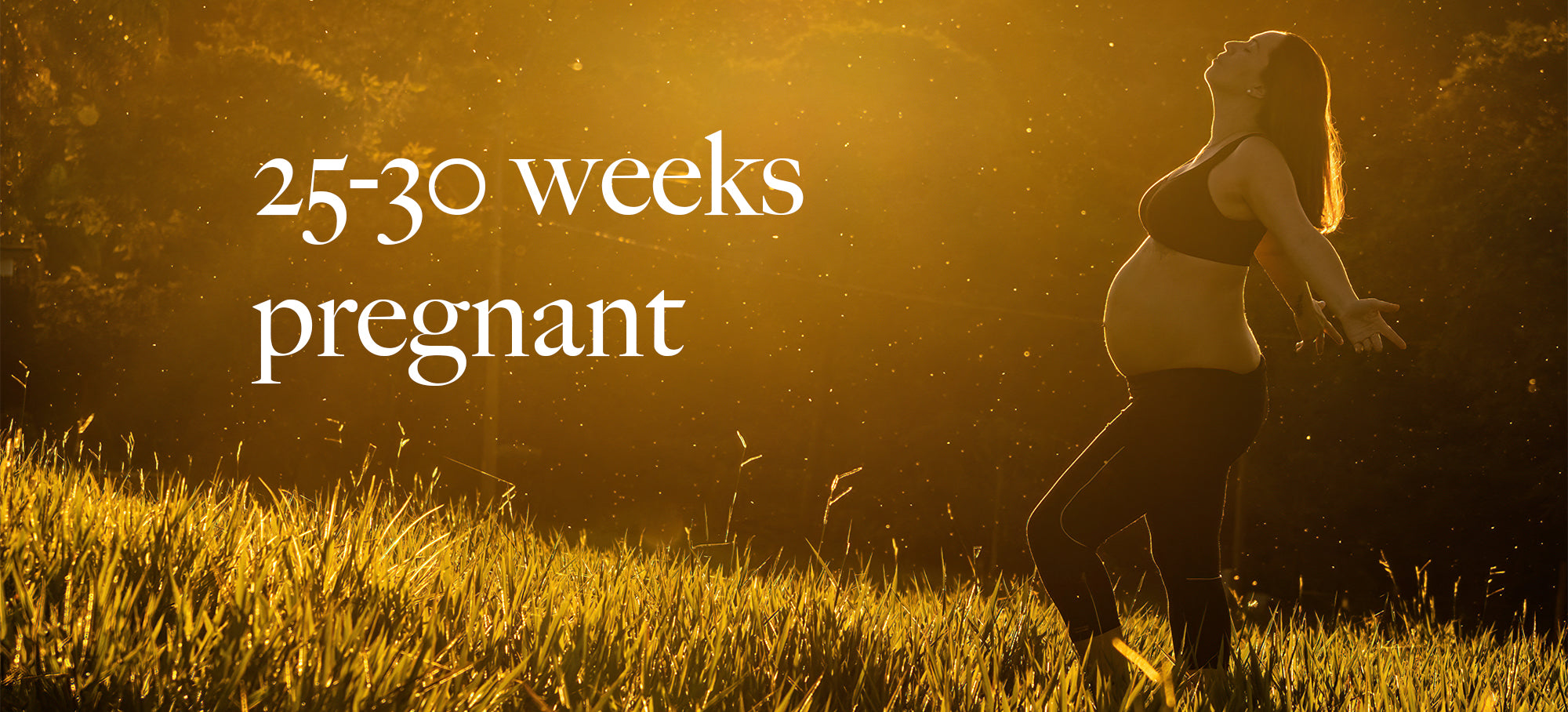

By Cradle & Tonic
You and your baby at 25-30 weeks
25-30 Weeks Pregnant
Welcome to Your Third Trimester!
Hey mama, welcome to your third trimester! As you prepare both body and mind to meet your little bundle of joy, keep reading our guide to discover what's happening for both you and your baby.
What Does a Baby Look Like at 25-30 Weeks?
Starting at 25 weeks, babies begin to gain some of that “baby fat” that makes them look more like a newborn. At 25 weeks, babies weigh on average 2.01 pounds (913 grams) and measure 13.82 inches (35.1 cm) in length.
By 30 weeks, they grow significantly, weighing approximately 3.44 pounds (1559 grams) and measuring 15.95 inches (40.5 cm).
Baby's Development
Week 25 is a big milestone as your baby’s eyelids begin to open. By week 30, your baby will have started blinking, and their sucking reflex will be getting stronger. You may even see them sucking their thumb during a scan!
As they store more fat, their appearance becomes chubbier with softer, smoother skin. They also start shedding the fine hair (lanugo) that previously covered their body, while the protective vernix remains to protect their delicate skin from the amniotic fluid.
At 30 weeks, your baby – though still small – is starting to look more like the newborn you'll soon meet!
Pregnancy Symptoms - Week 25-30
Some of the symptoms from your first trimester may have subsided, but new ones may appear as you enter the third trimester.
Weakened Pelvic Floor
Your pelvic floor may feel weaker due to hormonal changes, weight gain, and baby growth. It’s crucial to practice pregnancy-safe exercises to keep your pelvic muscles strong, which will help during labor and delivery. Speak with your GP or midwife for the best and safest exercises.
Gas and Bloating
Gas and bloating are common around weeks 25-30, often caused by increased progesterone, which relaxes muscles and affects digestion. While medications may be limited during pregnancy, you can help manage these symptoms by adjusting your diet, cutting out caffeine, and staying active.
Swollen Ankles and Feet
You may notice swelling in your ankles and feet, especially in the evening. In most cases, it’s normal and harmless. However, if the swelling is sudden and severe, consult your doctor to rule out conditions like pre-eclampsia or gestational diabetes.
Constipation
Hormonal changes can also lead to constipation. Staying hydrated, eating a fiber-rich diet, and staying active can help ease this symptom.
Fetal Movement
By 25 weeks, you should be familiar with your baby’s movements. Healthcare providers often recommend monitoring fetal movement from week 28. If anything feels off, contact your doctor immediately.
Set aside some quiet time each day to connect with your baby and track their movements. Find a comfortable place, place your hands on your bump, and note the movements. It’s a great way to ensure your baby’s well-being while strengthening your bond.
Dealing with the Beginning of Your 3rd Trimester
Entering your third trimester brings a mix of emotions – happiness, excitement, fear, and overwhelm. All these emotions are completely normal and valid.
As your body changes and you grow closer to meeting your baby, remember to treat yourself with kindness and patience. Take time for yourself daily. Whether it’s a relaxing bath or simply enjoying a quiet moment, indulge in self-care to ground yourself in the present moment.
